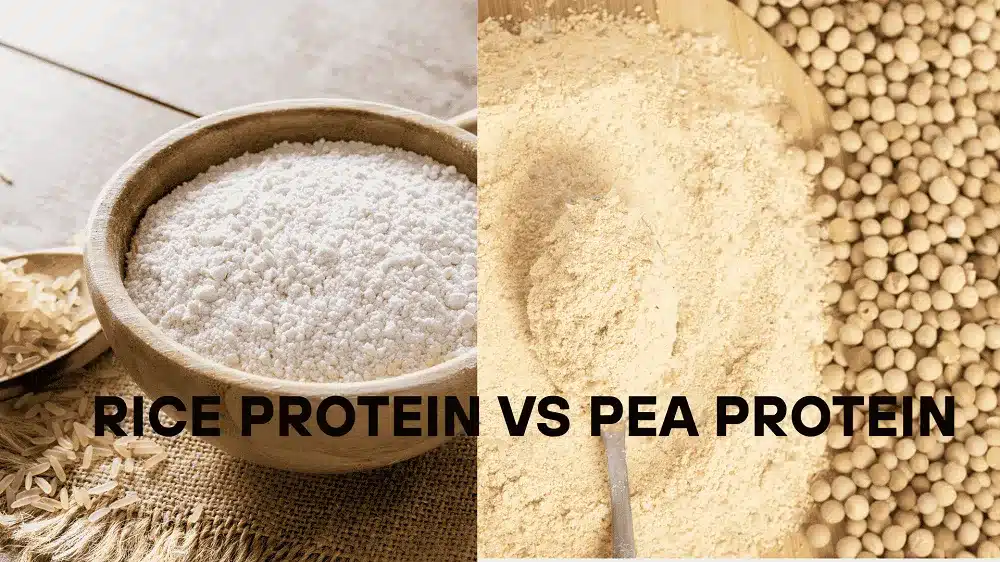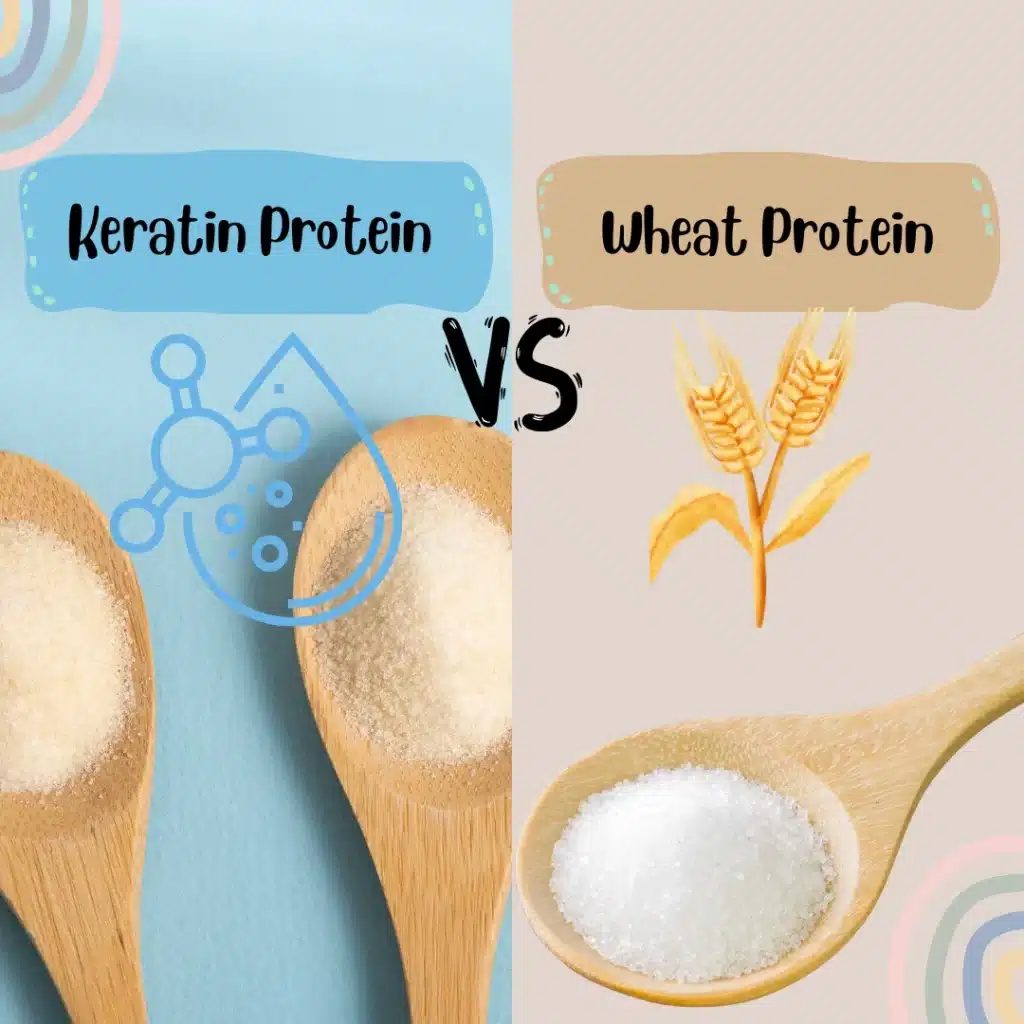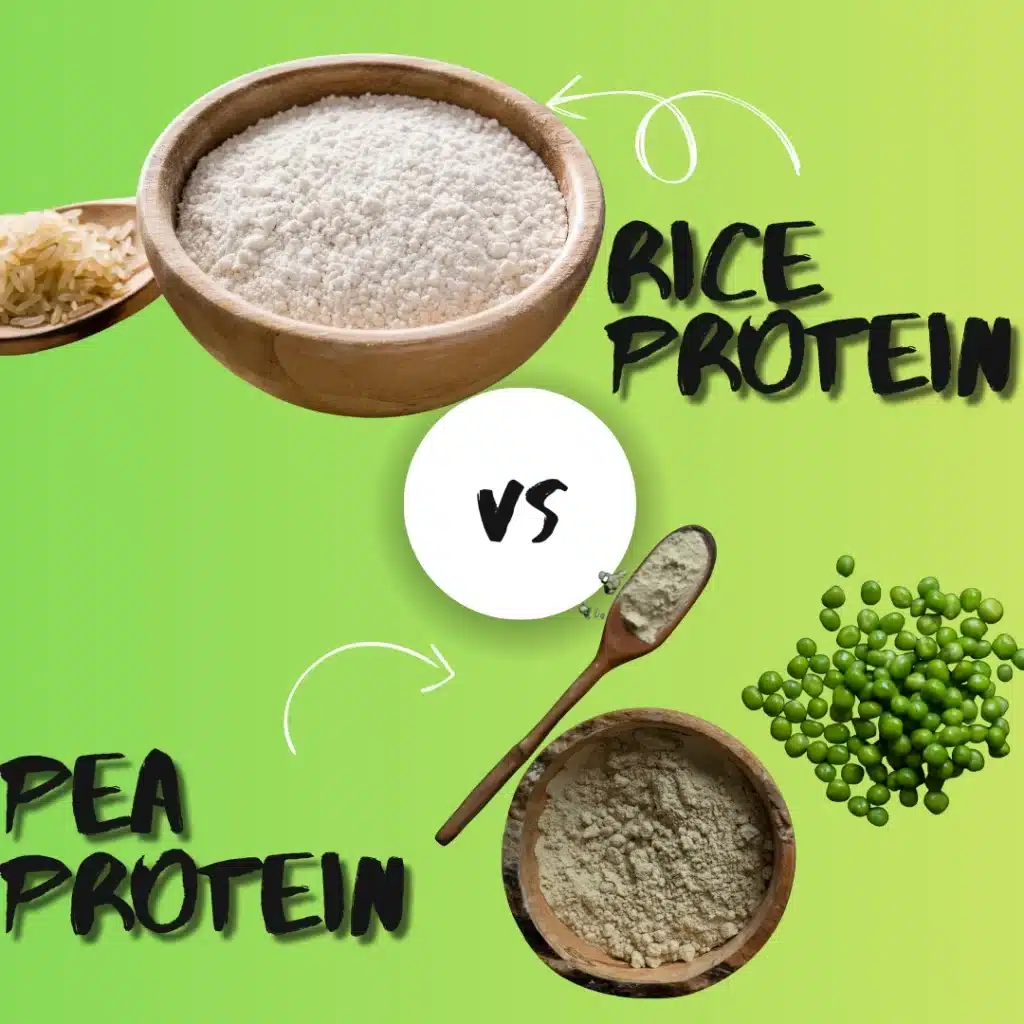Plant-based protein supplements are gaining popularity, with rice protein vs pea protein leading the pack for vegan, allergen-free nutrition. As the plant-based protein market grows toward $20.8 billion by 2028, choosing the right protein can support muscle growth, weight management, and overall health. As a leading supplier of مكونات المكملات الغذائية و حلول تصنيع المعدات الأصلية، نحن هنا للمقارنة rice protein vs pea protein, covering their sources, benefits, and uses. This guide uses simple language, science-backed facts, and practical tips to help you pick the best protein for your goals, whether it’s building muscle or staying healthy.
فهم البروتينات النباتية
Proteins are the building blocks of your body, helping muscles grow, tissues repair, and energy stay high. Plant-based proteins, like rice protein vs pea protein, are sustainable alternatives to animal proteins (e.g., whey). They’re vegan-friendly, often hypoallergenic, and eco-conscious.

Why Plant-Based?
- Supports vegan or vegetarian diets.
- Lower environmental impact than animal proteins.
- Often easier to digest for sensitive stomachs.
البروتينات الكاملة مقابل البروتينات غير الكاملة: A complete protein has all nine essential amino acids your body can’t make. Most plant proteins are incomplete, but combining them (e.g., rice and pea) can make them complete.
بروتين الأرز: المصادر والخصائص
بروتين الأرز comes from brown rice, processed to isolate the البروتين using enzymes. It’s a popular choice for its mild flavor and allergen-free profile.
المصادر:
- Made from whole brown rice grains.
- Minimal in regular rice dishes, so supplements provide a concentrated dose (70–80% protein).
نوع البروتين:
- بروتين غير مكتمل، منخفض في اللايسين ولكنه غني بالميثيونين والسيستين.
- Needs pairing with lysine-rich foods (e.g., legumes) for completeness.
الميزات الرئيسية:
- Hypoallergenic, great for those with food sensitivities.
- قوام ناعم، مثالي للمخفوق أو السموثي أو الخبز.
- Affordable and widely available in powders or bars.
Pea Protein: Sources and Characteristics
بروتين البازلاء is extracted from yellow split peas through mechanical separation. It’s a favorite for its high protein content and muscle-building potential.
المصادر:
- Sourced from yellow peas, a sustainable crop.
- Not found in large amounts in whole peas, making supplements key (80–85% protein).
نوع البروتين:
- Nearly complete protein, rich in lysine and branched-chain amino acids (BCAAs) like leucine.
- Lower in methionine, but closer to complete than rice protein.
الميزات الرئيسية:
- Highly digestible, with a PDCAAS (digestibility score) of 0.89.
- Slightly earthy taste, versatile for sweet or savory recipes.
- Supports muscle growth and satiety.
Comparing Rice Protein vs Pea Protein
إليك جدول مقارنة لتسليط الضوء على الاختلافات في rice protein vs pea protein:
| أسبكت | بروتين الأرز | بروتين البازلاء |
|---|---|---|
| المصدر | أرز بني | Yellow split peas |
| نوع البروتين | غير مكتمل (ليسين منخفض) | Near-complete (low methionine) |
| قابلية الهضم (PDCAAS) | 0.50-0.70 | 0.89 |
| الأفضل لـ | Sensitive stomachs, baking | Muscle building, weight loss |
| مسببات الحساسية | نادر (حساسية الأرز) | Possible (legume allergies) |
| Taste/Texture | ناعم، معتدل | Earthy, slightly grainy |
العلم يقول: A 2013 study in مجلة التغذية found pea protein matched whey protein for muscle growth in athletes, thanks to its BCAAs. Rice protein, while less effective alone, supports muscle recovery when combined with other proteins, per a 2018 مجلة الجمعية الدولية للتغذية الرياضية study. Blending rice protein vs pea protein creates a complete amino acid profile, rivaling animal proteins.
الفوائد والتطبيقات
كلاهما rice protein vs pea protein offer unique benefits, making them ideal for different goals.
فوائد بروتين الأرز
- تعافي العضلات: Provides methionine for tissue repair, great for post-workout.
- صحة الجهاز الهضمي: Gentle on the stomach, ideal for those with allergies or sensitivities (how digestible is rice protein?).
- إدارة الوزن: منخفضة السعرات الحرارية وتدعم الشبع من أجل نظام غذائي صحي (هل مسحوق بروتين الأرز مفيد لك؟).
Pea Protein Benefits
- بناء العضلات: High in BCAAs, effective for muscle growth (does pea protein build muscle?), per 2015 Journal of Sports Medicine الدراسة.
- صحة القلب: Rich in arginine, which supports blood flow.
- إنقاص الوزن: Increases fullness, aiding weight control (is pea protein better for weight loss?).
المزايا المجمعة
المزج rice protein vs pea protein is a game-changer (are split peas and rice a complete protein?):
- Combines lysine (pea) and methionine (rice) for a complete protein.
- Supports muscle growth, recovery, and weight management.
- Popular in vegan protein powders for athletes and health-conscious consumers.
التطبيقات: Used in protein powders, bars, meal replacements, and shakes. Ideal for:
- Athletes building muscle (does rice protein build muscle?).
- Vegans seeking complete proteins.
- Weight loss diets needing filling, low-calorie options.
Sourcing High-Quality Rice and Pea Protein
Quality matters for effective rice protein vs pea protein supplements. As a trusted supplier of food supplement ingredients and OEM solutions, we ensure:
- النقاء: GMP-certified rice and pea protein powders with 80–85% protein content.
- الاستدامة: Organic, non-GMO options from eco-friendly sources.
- خالية من مسببات الحساسية: خالية من مسببات الحساسية الشائعة، مع اختبار من طرف ثالث للتأكد من السلامة.
- خدمات تصنيع المعدات الأصلية: الخلطات المخصصة (على سبيل المثال, rice protein vs pea protein مع الزنك والمغنيسيوم P5P)، والتغليف، والامتثال العالمي.
لماذا تختارنا؟ Our high-quality raw materials help brands create top-tier vegan protein supplements for the $20.8 billion market. We support startups and established companies with tailored formulations.
إرشادات الجرعة والاستخدام
إليك كيفية الاستخدام rice protein vs pea protein بفعالية، استنادًا إلى إرشادات شبكة ISSN:
| نوع البروتين | الجرعة الموصى بها | أفضل الممارسات |
|---|---|---|
| بروتين الأرز | 20-30 جم/اليوم (عضلي)؛ 10-20 جم/اليوم (عام) | Mix in smoothies or bake into bars |
| بروتين البازلاء | 20-30 جم/يوميًا (للرياضيين)؛ 10-15 جم/يوميًا (يوميًا) | Blend in shakes or savory recipes |
نصائح للاستخدام:
- التوقيت: Post-workout for muscle recovery or morning for energy (can I eat pea protein every day?). Daily use is safe for most.
- الخلط: Blend with water, plant milk, or smoothies. Rice protein is smoother; pea protein may need flavor masking.
- التوليفات: Mix rice and pea protein for a complete amino acid profile. Add الزنك والمغنيسيوم P5P لتحسين الاسترداد (متوفرة في خلطاتنا المصنعة للمعدات الأصلية).
الآثار الجانبية المحتملة والاحتياطات
كلاهما rice protein vs pea protein are safe for most, but here’s what to know:
بروتين الأرز
- الآثار الجانبية: اضطراب نادر في الجهاز الهضمي؛ حساسية الأرز غير شائعة (is rice protein inflammatory? No evidence suggests it’s inflammatory).
- الاحتياطات: Safe for daily use, but consult a doctor for kidney issues or high-protein diets (can I eat pea protein every day?).
بروتين البازلاء
- الآثار الجانبية: Possible bloating for sensitive stomachs (what is the drawback of pea protein?). Rare legume allergies.
- الاحتياطات: Avoid if allergic to peas or legumes. Start with small doses to test tolerance.
نصائح عامة: Consult a doctor if pregnant, breastfeeding, or managing conditions like kidney disease. Our high-purity proteins minimize risks with clean, tested ingredients.
جدول المقارنة: اعتبارات عملية
يساعدك هذا الجدول على الاختيار بين rice protein vs pea protein:
| العامل | بروتين الأرز | بروتين البازلاء | الخيار الأفضل |
|---|---|---|---|
| بناء العضلات | معتدل | Excellent (BCAAs) | Pea for athletes |
| قابلية الهضم | لطيف ومضاد للحساسية | High but may cause bloating | أرز للمعدة الحساسة |
| المذاق | Mild, smooth | Earthy, grainy | أرز متعدد الاستخدامات |
| التكلفة | Affordable | أغلى قليلاً | أرز للميزانية |
| الاستدامة | جيد | Excellent (low water use) | Pea for eco-focus |
الوجبات الجاهزة الرئيسية: Choose pea protein for muscle growth and weight loss, rice protein for sensitive digestion, or a blend for complete nutrition.
الخاتمة
Rice protein vs pea protein offers unique benefits for vegan, health-conscious consumers. Rice protein is gentle and versatile, while pea protein excels for muscle building and satiety. Blending them creates a complete protein, perfect for athletes and everyday use. As a leading supplier of rice protein vs pea protein المواد الخام وحلول تصنيع المعدات الأصلية، نحن نوفر مكونات مستدامة معتمدة من GMP لمساعدة العلامات التجارية على إنشاء مكملات غذائية من الدرجة الأولى. هل أنت مستعد لإطلاق خط البروتين النباتي الخاص بك؟ اتصل بنا للحصول على rice protein vs pea protein أو تطوير تركيبات مخصصة لسوق $20.8 مليار دولار.
الأسئلة الشائعة
What’s better, pea protein or rice protein?
Pea protein is better for muscle building due to BCAAs; rice protein suits sensitive stomachs (rice protein vs pea protein). Blend for complete protein.
Which is the healthiest type of protein powder?
Both are healthy, but pea protein’s higher digestibility (PDCAAS 0.89) and BCAA content make it slightly better for athletes. Rice is gentler for allergies (is pea better than rice?).
What’s better than pea protein?
Blends of pea and rice protein outperform pea alone by providing a complete amino acid profile, rivaling whey (are split peas and rice a complete protein?).
Is pea protein better for weight loss?
Yes, pea protein’s high satiety helps with weight loss by reducing hunger, per a 2016 Food & Nutrition Research study. Rice protein also supports weight management.
المراجع
- المعاهد الوطنية للصحة. (2023). المكملات الغذائية للتمارين الرياضية والأداء الرياضي. https://ods.od.nih.gov/factsheets/ExerciseAndAthleticPerformance-HealthProfessional/
- Joy, J. M., et al. (2013). “The effects of pea protein vs. whey protein on muscle thickness and strength.” مجلة التغذية، 12(1), 86. doi:10.1186/1475/1475-2891-12-86
- Gorissen, S. H. M., et al. (2018). "محتوى البروتين وتكوين الأحماض الأمينية لعزل البروتين النباتي المتاح تجاريًا." مجلة الجمعية الدولية للتغذية الرياضية، 15 (1), 41. doi:10.1186/s12970-018-0244-0244-0.
- Babault, N., et al. (2015). “Pea proteins oral supplementation promotes muscle thickness gains.” Journal of Sports Medicine, 3(1), 3–10. doi:10.1155/2015/806485
- Dahl, W. J., et al. (2016). “Pea protein and satiety in humans.” Food & Nutrition Research, 60, 32630. doi:10.3402/fnr.v60.32630



